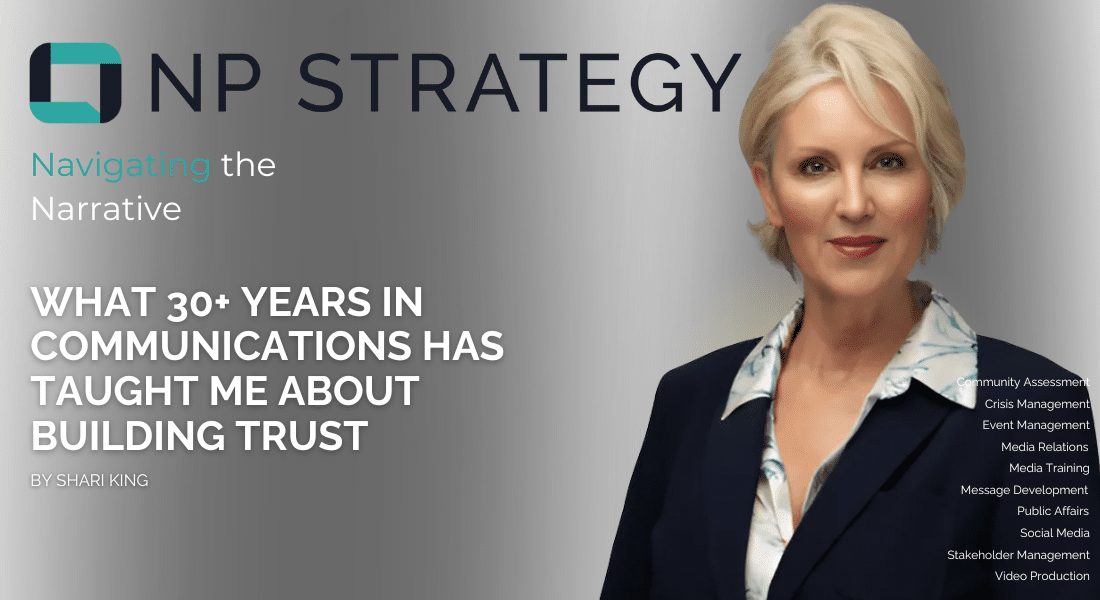
When I started my career in communications more than three decades ago, the industry looked very different. Press releases went out by fax, advertising was mostly in print, and “digital strategy” wasn’t even a concept. What hasn’t changed is the foundation of effective communication: trust.
Throughout my career, whether helping a Fortune 500 company navigate a crisis, guiding a nonprofit through a rebrand, or creating community engagement programs, trust has always been the deciding factor in whether communication succeeds or fails.
Lesson 1: Consistency Builds Credibility
Flashy campaigns might spark attention, but consistency is what earns confidence. Audiences – customers, employees, or communities – are always asking: Can I rely on this organization? True consistency isn’t repeating the same message, but aligning words and actions across every channel, every time.
Lesson 2: Listening Matters More Than Talking
When I founded my own marketing and communications agency, I thought my role was to provide answers. Over time, I discovered my most valuable skill was listening. Listening shows respect and reveals what audiences care about most. The strongest strategies I’ve led were shaped not just by what we wanted to say, but by what stakeholders told us they needed to hear.
Lesson 3: Transparency Wins in Crisis
Crisis communications teaches difficult but powerful lessons. Trust can evaporate in seconds, and the instinct to stay quiet is strong. But transparency – sharing what you can, acknowledging challenges, and showing empathy – preserves credibility. Leaders who communicate clearly in tough moments recover reputations faster than those who retreat into silence.
Lesson 4: Relationships Are the Real Strategy
Marketing trends evolve quickly, but relationships endure. Building trust means engaging with stakeholders long before you need their support. Companies often invest heavily in branding or digital campaigns, but the most valuable asset is goodwill built through genuine relationships. At its core, communication is about people – and people trust those who value relationships over transactions.
Lesson 5: Trust Takes Time
There are no shortcuts. Trust isn’t won with a single campaign; it’s built gradually through consistent actions, clear communication, and authenticity. In a fast-moving, digital-first world, it’s tempting to prioritize speed over depth. But the organizations that last are those that invest in trust for the long term.
Final Thoughts
Tools and platforms will always change. What doesn’t change is the human need for trust. Whether you’re a global brand, a nonprofit, or a startup, success depends on the credibility you build along the way.
For me, the most meaningful part of this work has always been the people – the clients who trusted me to guide them through challenges, the colleagues who pushed me to think differently, and the communities who welcomed us when we listened with intention. Those relationships are what I carry with me after more than three decades in this field.
At its core, communication isn’t just about delivering messages. It’s about building connections, showing up with integrity, and earning trust one conversation at a time. And that, after 30+ years, is still the most rewarding part of this profession.


